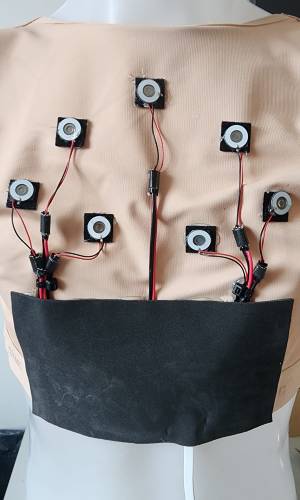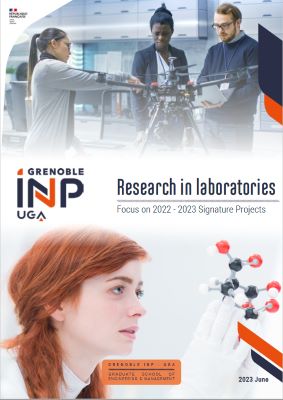
Respiratory diseases represent a major public health issue, causing one in six deaths worldwide. At the top of the list, chronic obstructive pulmonary disease (COPD) and asthma affect hundreds of millions of people and account for 46.7% of health spending related to respiratory pathologies. However, diagnosing these illnesses remains a complex, lengthy and expensive process, requiring multiple consultations and costly medical equipment. This is the niche that Altus aims to target. This start-up emerging from GIPSA-lab*, incubated at Linksium, is developing breakthrough technology combining ultrasound imaging and artificial intelligence.
Disruptive technology for accessible diagnostics
Altus draws on a patented innovation: a vest fitted with an array of sensors that can analyse lungs in real time, contact- and radiation-free. Unlike classic tools such as spirometry or CT scans, which require active cooperation from the patient and exposure to x-rays, this technology allows for continuous, precise and autonomous assessment of respiratory diseases. Through detailed analysis of ultrasound signals, it generates a pulmonary function tomography and allows for real-time monitoring of changes in pathology.
Developed using Cornel Ioana’s research at GIPSA-lab, this technology is based on an innovative approach: instead of simple imaging using wave reflection, Altus uses the distortion of ultrasound signals in pulmonary tissue to identify anomalies. Advanced data processing makes it possible to detect COPD and asthma in their earliest stages and adapt patient care.
The project has already a patent filed and received support from Linksium for its technological maturation and industrial roll-out. The device is scheduled to arrive on the market in 2026, after a clinical validation phase in partnership with the Grenoble University Hospital.

A market with high potential and societal impact
The global market for medical devices for respiratory illnesses is estimated at $6 billion, with strong growth related to the challenges of remote monitoring and screening. By targeting hospital-based and private pulmonologists, Altus is aiming to achieve €24 million in turnover in the next five years. In the long-term, the device could also be used in early screening campaigns or emergency and intensive care departments.
But beyond the economic prospects, Altus primarily aims to revolutionise treatment for respiratory diseases, by lowering the barriers to diagnosis. By reducing the costs of testing fourfold and reducing the average timeline for diagnosis from 30 to 3 days, the Grenoble-based start-up is opening up possibilities for more preventive and effective healthcare.
* CNRS / UGA / Grenoble INP - UGA



